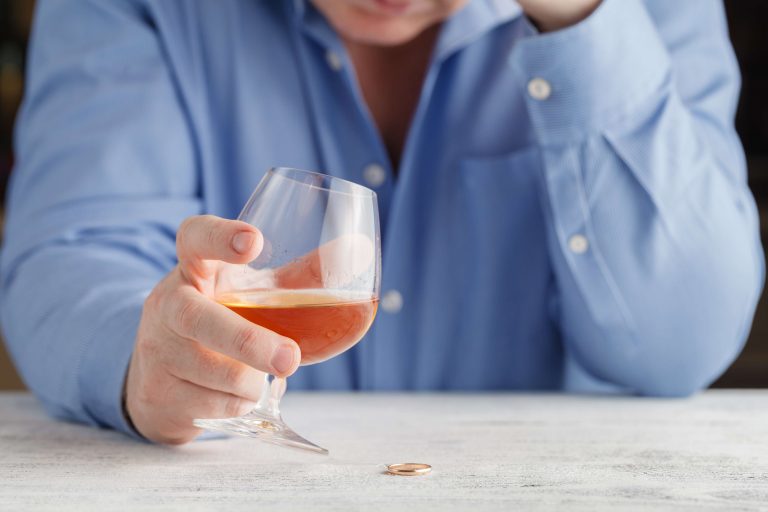What Is Marijuana? Effects, Risks, Addiction, and Treatment
However, this comparison is complex and involves several factors. As marijuana addiction deepens, individuals may begin to change their social circles, gravitating towards others who share similar habits and away from those who do not. Marijuana addiction can lead to noticeable changes in behavior and daily routines. These behavioral symptoms often disrupt an individual’s ability to maintain responsibilities and relationships. Long-term marijuana use can lead to more severe health consequences, some of which may not be immediately apparent but develop over time. Marijuana use manifests in various physical signs that can be noticeable to others.
How Marijuana Affects Your Mind & Body
Connection with others who support your recovery is essential for long-term success. Other support groups like SMART Recovery offer evidence-based approaches to overcoming substance use disorders. Connecting with others through support groups reminds you that you’re not facing this journey alone and provides practical strategies from people who have successfully maintained recovery for a long time. When someone with marijuana dependence stops using, they often experience symptoms of withdrawal. While marijuana withdrawal may not be as severe as withdrawal from harder drugs, these symptoms are real and can make quitting cold turkey extremely challenging. Addiction is a recurring cycle that worsens over time and involves neuroplastic changes in the brain reward, stress, and executive function systems (Koob and Volkow 2016).
Can adolescents become addicted to marijuana? #
And so just putting it on their radar with that general screening, as I mentioned, will make a difference. It is also important to note that if they’re struggling with something else, as I mentioned, there’s other diagnoses that folks may have, but another one that’s really near and dear to my heart is tobacco use. Forging a strong support network of people who respect your choices, including the decision not to use, is invaluable. Awareness of familial history with substance use is also helpful, as it can highlight a personal susceptibility to addiction. Keeping a diary of your cannabis use can act as a reality check, offering a clear view of your consumption patterns and alerting you to any trends towards increased use or misuse.
It’s possible to get addicted to pot. Here’s what to know.
Regular exposure to THC affects the brain’s reward system, diminishing natural dopamine levels and reinforcing the desire for continued use. The plant contains more than 100 unique compounds known as cannabinoids. The most prominent and psychoactive cannabinoid is Tetrahydrocannabinol (THC), responsible for the euphoria or “high” that users experience. It’s really important as a result for folks to properly store their cannabis products in safe containers, so that young people aren’t affected.
These effects can exacerbate existing mental health conditions or contribute to the development of new disorders. Alcohol is considered more physically addictive, while marijuana addiction tends to be psychological. Among marijuana users, 42% of those who had used the drug in the past month communicated daily or near-daily use, in comparison to 11% of alcohol users who consumed alcohol at the same frequency. In total, 62 million Americans—about 20% of the U.S. population aged 12 and older—reported using marijuana at least once in the past year, underscoring its increasing prevalence. These trends in cannabis and alcohol consumption in the United States over the past 40 years were examined in the National Survey on Drug Use and Health, published in the journal Addiction.

“Part of the problem with prevention and deciding whether you should use a drug or not is that it’s hard to imagine, with one’s current brain, having a brain that isn’t making those evaluations rationally,” drug addiction he said. Welch described his first week without marijuana after about a decade of daily use as one filled with sleepless nights and irritable days. In an attempt to return to baseline, it will compensate for the difference, raising a function that the drug lowered, like heart rate, or reducing a function that the drug boosted, like mood. “I’ve always found quitting marijuana to be easy when I needed to because of travel reasons or personal reasons, or professional, or what have you,” he told Healthline. This classification is something that really grates people who support legalization of marijuana. On the other hand, there are studies that have issued warnings on marijuana and heart health as well as using marijuana for morning sickness.
We exist to serve those who are seeking addiction treatment in Middle Tennessee, and we have a Cumberland Heights program near you! Our main campus is located in Nashville, Tennessee, but we have treatment centers across the state of Tennessee in Jackson, Chattanooga, Knoxville, Murfreesboro, Franklin, Clarksville, Crossville, Cookeville, and more. Commonly referred to as weed, pot, or Mary Jane, Marijuana has gained widespread acceptance and usage over the years. While often viewed as a benign or harmless drug, it is the most commonly used illicit drug in the United States, particularly in regions where it has been legalized for medicinal or recreational purposes.
Cannabis use disorder (CUD)
Studies show that teens who use heavily may lose IQ points and struggle with long-term is weed addictive cognitive issues. Marijuana addiction can lead to a decline in productivity, difficulties in maintaining responsibilities, strained relationships, and overall deterioration in quality of life, affecting both personal and professional areas. As marijuana addiction progresses, it can strain relationships and hinder an individual’s ability to maintain a healthy social life. Environmental factors, including early exposure to marijuana and other substances, play a crucial role in the development of addiction. Studies note that early marijuana use can interrupt the normal development of gray matter, a type of brain tissue that helps control mental functions, increasing schizophrenia risks. Early exposure to marijuana is also linked to changes in areas of the brain that are often connected with psychosis.
- For instance, those who use marijuana to cope with anxiety, depression, or sleep disorders can find more appropriate treatment types—including lifestyle changes, therapy, and medication—to help relieve their symptoms.
- If you think you or someone you care about may have a problem with marijuana, contact one of our Admissions Navigators today for more information about finding treatment options for marijuana addiction.
- Such treatments primarily focus on psychotherapy, but researchers are also exploring medications that might someday be helpful.
- One marijuana user, Conrad, age 47, of San Francisco, said that when he can’t smoke, he drinks more.
AMA membership offers unique access to savings and resources tailored to enrich the personal and professional lives of physicians, residents and medical students. Cannabis use disorder means marijuana use causes problems in your life—but you can’t seem to stop. It’s when marijuana stops being a choice and starts feeling like a need. Sober Speak is a recovery-focused podcast and online community dedicated to sharing people’s experiences, strengths, and hope in long-term sobriety and early recovery. Don’t let fear of the federal government’s stance on marijuana prevent you from seeking help. Treatment providers prioritize your personal information and recovery, not reporting or judgment.
We understand the emotional weight behind substance use and offer compassionate, evidence-based care for marijuana addiction and other substance use disorders. High-potency cannabis—especially in forms like wax, oil or synthetic marijuana—can lead to more intense highs and more serious side effects. These include panic attacks, paranoia, psychosis, respiratory issues and an increased risk of addiction.
The Debate Around Marijuana Addiction #

If you or a loved one is struggling with marijuana use, help is available and recovery is possible. If you are ready to find treatment options, get started right now with our free rehab locator tool. Find addiction treatment facilities that take insurance, inpatient rehabs, outpatient rehab programs, and more.

Leave a Reply
Want to join the discussion?Feel free to contribute!